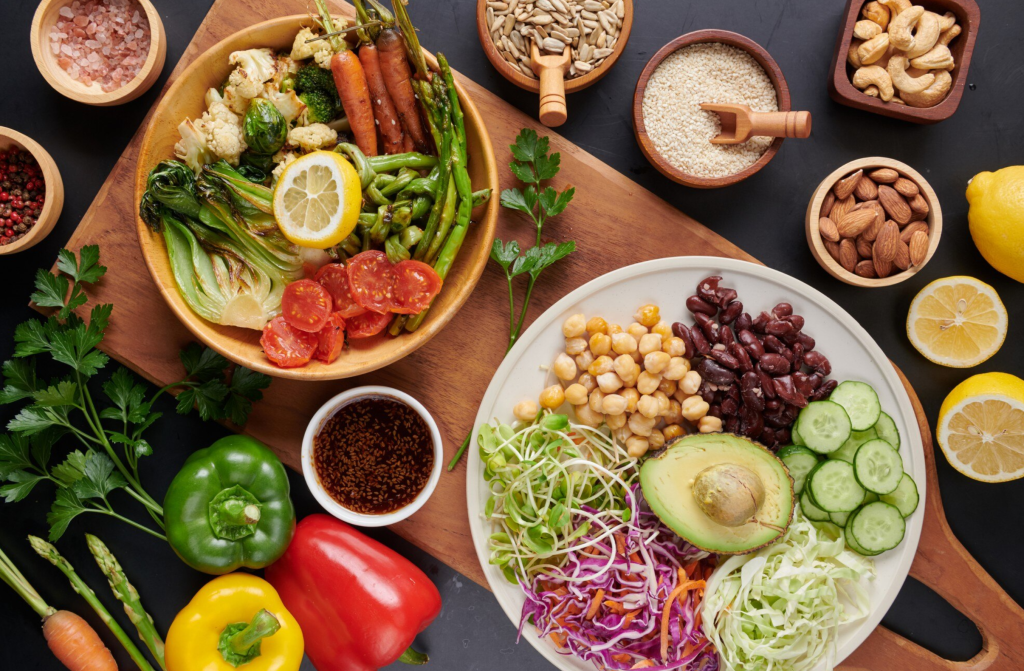Whether you’re an elite athlete, a weekend warrior, or simply trying to stay fit, physical recovery is just as important as your workouts. But here’s what many people overlook: recovery doesn’t just happen in the gym or while you sleep—it begins on your plate. In fact, nutrition is a critical pillar of post-exercise recovery, influencing everything from muscle repair to inflammation control and energy restoration.
In this article, we’ll explore how smart nutrition choices can accelerate recovery, reduce injury risk, and optimize performance over time.

🥗 Why Nutrition Matters in Recovery
When you engage in physical activity, your body undergoes stress. Muscles develop tiny tears, glycogen (stored energy) is depleted, and inflammation increases. While rest helps, nutrition provides the raw materials your body needs to rebuild.
👉 Without proper fuel, recovery is slower, your immune system suffers, and your progress stalls.
🧬 The Science Behind Recovery Nutrition
Here’s a breakdown of what your body needs after exertion—and why:
1. Protein: The Building Block of Muscle
After a workout, muscle protein synthesis (MPS) increases to repair the micro-tears created during exercise. Consuming protein shortly after a session helps:
- Stimulate MPS
- Reduce muscle breakdown
- Speed up tissue regeneration
💡 How much? Most experts recommend 15–30g of high-quality protein within 30–60 minutes post-exercise. Complete proteins like eggs, lean meat, dairy, or plant-based options such as soy and quinoa are ideal.
A 2019 review in Frontiers in Nutrition confirmed that post-workout protein intake significantly enhances muscle recovery and performance.
2. Carbohydrates: Restoring Energy
Exercise drains your body’s glycogen stores—its primary energy source. Replenishing carbs after a workout:
- Restores energy levels
- Prevents fatigue
- Supports immune function
Complex carbs like brown rice, oats, fruit, and sweet potatoes are excellent for long-term recovery. Pairing carbs with protein enhances glycogen synthesis.
🔁 Think of carbs and protein as a recovery duo: one rebuilds, the other refuels.
3. Healthy Fats: Fighting Inflammation
While fat isn’t needed immediately post-workout, omega-3 fatty acids in particular help reduce post-exercise inflammation and muscle soreness. These fats are found in:
- Fatty fish (like salmon and sardines)
- Walnuts
- Chia and flaxseeds
🧠 Bonus: Omega-3s also support brain health and joint mobility—key for anyone training consistently.
4. Micronutrients: The Unsung Heroes
Don’t underestimate the power of vitamins and minerals in recovery:
- Magnesium helps with muscle relaxation and sleep
- Potassium and sodium aid in electrolyte balance
- Vitamin C and E support tissue repair and reduce oxidative stress
- Iron ensures oxygen delivery to recovering muscles
💧 Hydration is also essential. Dehydration can impair recovery, reduce energy, and increase muscle cramps. So be sure to rehydrate with water and electrolyte-rich drinks, especially after intense or sweaty sessions.
⏱️ When Should You Eat for Optimal Recovery?
Timing matters—but it’s not everything. The idea of an “anabolic window” (the first 30–60 minutes after a workout) has been somewhat exaggerated, but consuming a balanced meal or snack within 1–2 hours of exercise remains a good rule of thumb.
🥤 Sample Post-Workout Snacks:
- Protein smoothie with banana and peanut butter
- Greek yogurt with berries and oats
- Scrambled eggs with toast and avocado
- Tofu stir-fry with brown rice
🛌 Nutrition for Recovery Beyond the Gym
Recovery doesn’t just apply to workouts—it includes healing from injuries, surgeries, or overtraining. During these periods, your body’s demand for nutrients actually increases.
To support holistic recovery:
- Increase protein intake to preserve lean mass
- Eat anti-inflammatory foods (berries, leafy greens, turmeric)
- Avoid ultra-processed foods that can slow healing
As one 2020 study in Nutrients highlights, malnutrition can delay recovery and worsen injury outcomes, even in otherwise healthy adults.
🧘 Lifestyle Tips to Pair with Nutrition
Even the best nutrition can’t work alone. For complete recovery, consider the following:
- Sleep: Aim for 7–9 hours nightly. This is when your body repairs itself most effectively.
- Mobility work: Gentle stretching and foam rolling aid muscle recovery.
- Mindfulness: Stress management supports hormonal balance and digestion.
🌱 Plant-Based Diets and Recovery
Good news for vegans and vegetarians: you can absolutely recover well on a plant-based diet. The key is to:
- Combine different plant proteins to get all essential amino acids
- Eat enough calories to meet energy needs
- Focus on nutrient-dense foods and fortified products for B12, iron, and zinc
💬 Tip: Add spirulina, lentils, hemp seeds, and nutritional yeast to your diet for an extra boost.
🚀 Final Thoughts
Recovery is where the magic happens. While training breaks your body down, nutrition helps rebuild it stronger than before. By choosing the right post-workout foods, staying hydrated, and listening to your body’s signals, you can:
- Recover faster
- Reduce soreness and injury risk
- Improve long-term performance
Ultimately, food is one of your most powerful recovery tools—and when used wisely, it can help you reach new levels of health and fitness.
📚 References
- Jäger, R., et al. (2017). “International Society of Sports Nutrition Position Stand: Protein and Exercise.” Journal of the International Society of Sports Nutrition.
- Tipton, K.D., & Phillips, S.M. (2013). “Dietary protein for muscle hypertrophy.” Nestlé Nutrition Institute Workshop Series.
- Ghaffari, M., et al. (2020). “Nutritional support in recovery from injury.” Nutrients. https://www.ncbi.nlm.nih.gov/pmc/articles/PMC7352660/






